Preserve Our Planet: Insulate Your Buildings
Energy certification has become mandatory in many countries, directly impacting a building’s market value. A building’s operating cost largely depends on its energy performance, including heating, cooling, and hot water supply efficiency. High energy consumption often results from excessive heat and cooling loss through a building’s walls, which is why insulation is critical to improving a building’s annual energy consumption.
Walls separate indoor and outdoor climatic conditions, subjecting them to heat and moisture migration. Heat always transfers from higher to lower temperatures, making insulation crucial for maintaining comfortable indoor temperatures. Other factors that contribute to heat and cooling loss include the roof, ventilation areas, and foundations.
The following diagrams illustrate the contributions of external walls to heat and cooling loss in single-family homes and multi-story buildings:
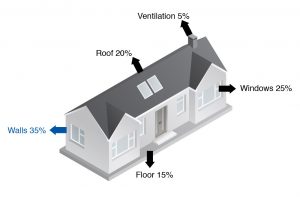 |
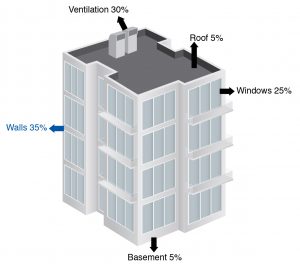 |
| SINGLE FAMILY HOME | MULTI-STORY BUILDING |
Non-insulated walls require significantly more energy to maintain a comfortable indoor temperature. Conversely, thermally insulated walls provide better temperature control indoors.
Cold Climates
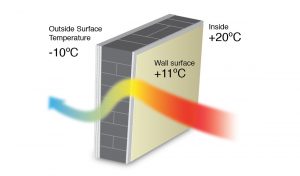 |
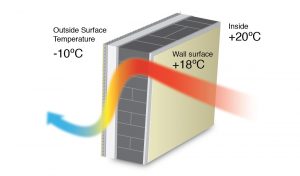 |
| No thermal insulation leads to a cooler internal wall surface. | Thermal insulation results in a warmer internal wall surface. |
Hot Climates
 |
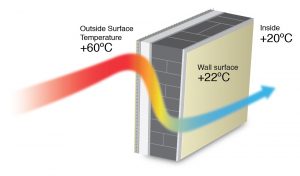 |
| No thermal insulation causes the internal wall surface to heat up. | Thermal insulation cools down the internal wall surface. |
Decreased fuel consumption in thermally protected buildings has positive ecological effects, including reduced consumption of non-renewable energy resources and lower CO2 emissions, which contribute to the greenhouse effect and global warming. Terraco EIFS offers a solution to save energy and money.
In many countries where EIFS is used, energy efficiency in buildings is driven by legislation. Buildings must have an Energy Rating Certificate, which classifies them according to their energy efficiency. This certificate must be shown to potential buyers before making an offer, directly affecting the building’s price. In Europe, the Kyoto Protocol enforces strict control on U-Values for new building permits, and many countries offer financial incentive schemes to improve energy efficiency in existing houses. As a result, these incentive schemes have spurred growth in the EIFS renovation market throughout colder areas of Europe.